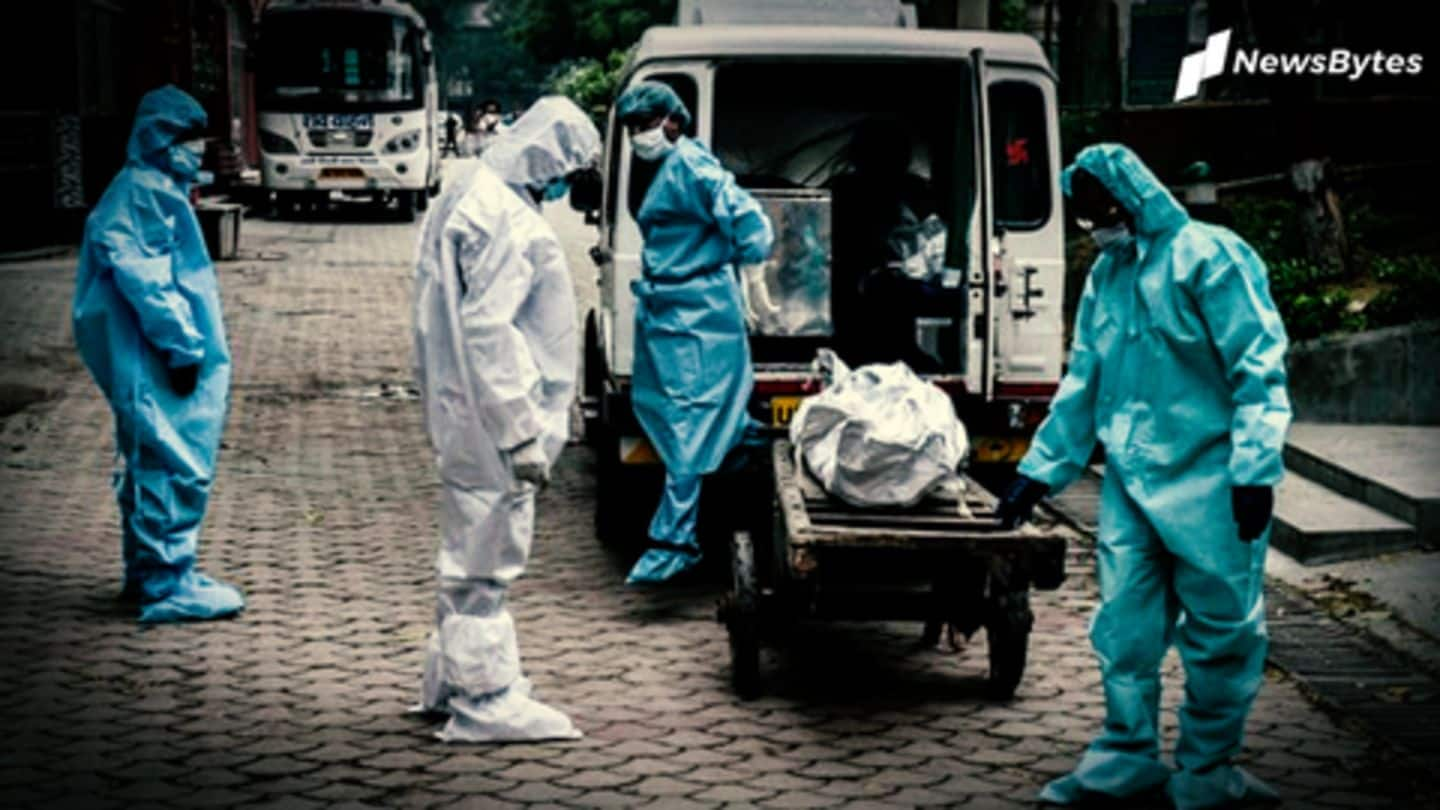
Overflowing crematoriums and mortuaries: Coronavirus makes last rites painful
What's the story
While countries, including India, are finding it difficult to keep the number of coronavirus cases low, they are faced with another major problem — cremation of the dead. With the number of dead spurting every hour, mortuaries in hospitals are forced to pile bodies on one another. The staff at crematoriums, despite working longer hours, can't clear the backlog, hence, the last rites are delayed.
What happened
Four furnaces of crematorium failed, bodies were sent back
The scenes from Lok Nayak Hospital, Delhi's largest dedicated hospital for COVID-19, are grim. The mortuary housed 108 bodies. Since 80 racks are full, the authorities dumped 28 bodies on top of one another. Yesterday, the Nigambodh Ghat CNG crematorium was in no position to take more bodies, so returned eight of them back to the hospital. Of six, only two furnaces were working.
Data
303 have died of COVID-19 in Delhi
At the mortuary, the bodies are wrapped in PPE kits, to minimize the risk of transferring the infection to health-care officials. In Delhi, the number of cases surged to 15,257. 303 have died, with 15 people losing their lives on Wednesday alone. A hospital official told HT they are yet to cremate bodies from five days ago, and the backlog is increasing daily.
Quote
After standing in sun, crematoriums turn us away: Official
"Wearing PPE suits, we stand in the sun outside the crematorium only to be told in the evening that they cannot accept bodies. Today there are 28 bodies on the floor lying next to each other or piled on top of each other," he said.
Problem
In pre-coronavirus days, 4-5 bodies were cremated
Meanwhile, at Nigambodh Ghat, there is helplessness. An official said before the pandemic, they cremated 4-5 bodies per day. They started their work at 9 am and wrapped up by 4 pm. "Now it opens at 7 am and shuts operation at 10 pm. Even this is not helping. The workers need at least two hours to dispose a body," the person told HT.
Furnaces
Nigambodh Ghat asked government to give money to repair furnaces
Suman Gupta of the Nigambodh Ghat Sanchalan Samiti said three furnaces stopped working a couple of months ago, but they never faced a problem. "Ours is not a commercial business. Last week, we finally managed to convince the government to give us the money to fix the three furnaces. Work is on," he said. Besides Nigambodh Ghat, COVID-19 patients are cremated at Punjabi Bagh.
Wood cremation
Cremation using wood has been allowed
Seeing the influx in cases, the North Delhi Municipal Corporation's Deputy Commissioner and Spokesperson Ira Singhal said order was passed to allow cremation using wood, though the CNG method is preferred. "The order has been issued so that the number of pending bodies for cremation could be cleared. We are making all efforts to tackle the problem," Singhal went on.
Mumbai
At Mumbai's KEM Hospital, bodies lied on the corridor
This state of affairs isn't restricted to Delhi alone. A few days ago, a photo from Mumbai's KEM Hospital made its way to social media. Bodies of those who died of COVID-19, or were suspected to have passed away due to the disease, were lying on the corridor. The authorities of one of the oldest medical institutions in India said the mortuary was full.
Picture
In US, bodies were kept on one another
In Detroit, United States, a health worker sent a distressing photo to CNN. Bodies were piled on top of another and stored in a vacant hospital room. The picture was taken in early April, when the hospital was overwhelmed. "All I know is we ran out of beds to keep our patients on so we couldn't spare any for the bodies," the worker said.
Other countries
In Italy and Iran too, cremation became a daunting exercise
When the peak of coronavirus reached Italy, families found it extremely difficult to give a respectful cremation to their loved ones. In Naples, 47-year-old Teresa Franzese succumbed to coronavirus but authorities didn't come to take her body. Only after her brother appealed on social media, did she find a casket after 36 hours. And in Iran, mass graves are expanding by the day.